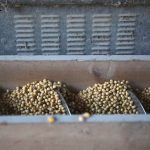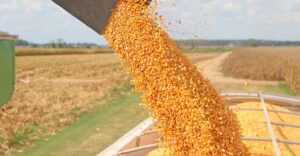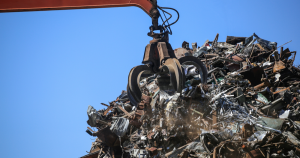EBA calls for preventing the introduction of export duties on oilseeds

The European Business Association (EBA) once again calls for the prevention of the introduction of export duties on oilseeds.
This is stated in the statement of the Association.
Member companies of the EBA Cereals and Oilseeds Committee have expressed concern about repeated legislative initiatives that provide for the introduction of export duties on some oilseeds. In particular, these are proposals to establish a duty on:
• soybeans – at the rate of 10%;
• rapeseed or colza seeds – also at the rate of 10%.
According to member companies, the relevant provisions were included in the Comparative Table to the draft Law No. 13157 “On Amendments to the Tax Code of Ukraine in connection with the adoption of the Law of Ukraine “On Integrated Prevention and Control of Industrial Pollution” during the preparation of the document for the second reading.
The business community calls on government agencies to refrain from imposing duties on agricultural exports, as their uninterrupted sales are critical to supporting the agricultural sector in the context of war and post-war recovery. In addition, this is a clear signal to international producers and consumers that Ukraine remains a reliable and responsible partner.
In addition, according to experts, the proposed export duties contradict the Association Agreement between Ukraine and the EU. According to Article 31 of this Agreement, the parties are expressly prohibited from introducing or maintaining in force any duties, taxes or other measures having equivalent effect on the export of goods.
Moreover, according to paragraph 4 of the Resolution of the Verkhovna Rada of Ukraine “On Certain Measures to Fulfill Ukraine’s Obligations in the Sphere of European Integration”, all draft laws containing provisions related to the adaptation of Ukrainian legislation to EU legal provisions and the fulfillment of Ukraine’s international legal obligations must undergo additional examination in the relevant profile committee of the parliament and in the Cabinet of Ministers of Ukraine. However, in the case of draft No. 13157, these requirements were presumably ignored.
The discrepancy between the title and content of the draft law also raises questions, the EBA noted. The stated purpose of the document — amendments to the Tax Code in connection with the introduction of legislation on industrial pollution control — is actually not related to the introduction of duties on agricultural products.
In conditions of full-scale war, economic instability, and the need to restore the country, the introduction of export duties on oilseeds is a risky step that contradicts Ukraine’s strategic interests. Such initiatives can significantly undermine the export potential of the agricultural sector, create an additional burden on business and reduce the competitiveness of Ukrainian products on world markets, business representatives emphasized.
Earlier, USM reported that during a meeting of the Verkhovna Rada’s agricultural committee on July 7, people’s deputies did not support the initiative to introduce duties on soybean and rapeseed exports. At the same time, the Committee on Finance, Tax and Customs Policy, on the contrary, recommends introducing duties.





